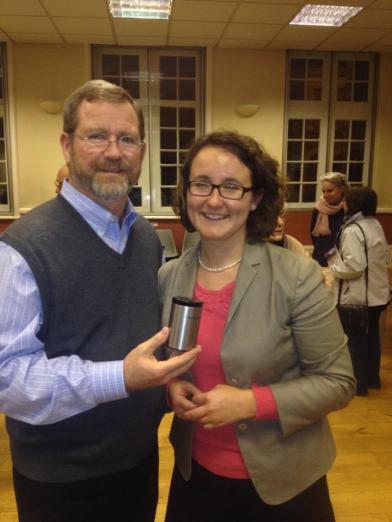I came across this video earlier this week. Obviously, it comes from a Protestant context (so their concept of worship is not ours), but essentially, it is saying exactly the same thing that we Catholics have been hearing time and time again recently. Here are just a couple of examples from Evangelii Gaudium (that we by now know pretty well):
I dream of a “missionary option”, that is, a missionary impulse capable of transforming everything, so that the Church’s customs, ways of doing things, times and schedules, language and structures can be suitably channeled for the evangelization of today’s world rather than for her self-preservation. (EV, 27)
We must admit, though, that the call to review and renew our parishes has not yet sufficed to bring them nearer to people, to make them environments of living communion and participation, and to make them completely mission-oriented. (EV, 28)
However, this video raises some questions for me. The experience of a typical English parish is precisely not an overload of programmes or events. If only! From my experience of average parishes, you’d be lucky to turn up on a given evening and find anything going on. (Recently, I heard of a man (not a Catholic) who contacted the local parish of a town he was staying in overnight with business. He wanted to know if there was a prayer meeting, or something else he could attend in the church that evening. The response he received from the parish secretary? “Sorry, nothing’s going on.” How sad! What a missed opportunity.)
It only makes sense to send out disciples to evangelise. After all, “A person who is not convinced, enthusiastic, certain and in love, will convince nobody” (EV, 266).
So the call of this video (and to some extent, Pope Francis’s call, too) seems only to make sense to a parish community which already has disciples – which provides formation, has a sense of purpose and mission among even a small percentage of its parishioners.
Earlier in the week, a post from an evangelical Christian friend of mine appeared on my newsfeed. He spoke about how his church has grown over the last two years: they have built a community projects building which houses projects such as a food bank, money advice, child bereavement support, and youth and children’s ministry. He finished by saying how his church is reaching 600 members on a Sunday. 600! This is what they have achieved with up to 600 disciples. Sadly, how many Catholic parishes of 1000+ parishioners could claim anything like this?
The reality of most parishes is that we’re at ground-zero, and you’d be fortunate to find your church even open during the day, let alone to stumble across a core group of disciples. It’s not possible to send out Mass-going Catholics who are not disciples to proclaim the Gospel. What will they be calling people to? To be a part of a cultural ‘club’, rather than a life-giving relationship with Jesus? Unless we are disciples “in love” with the Lord, we will evangelise no one.
My response to this video, then, is that, for a first step at least, there’s a need to concentrate on programmes and events, of awakening within the baptised their call to holiness and evangelisation, before it is possible for people to be sent, to “go out”.







